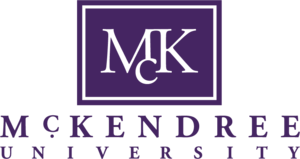Customer Stories
Purdue University Creates a Foundation for e-Learning Success
Challenge Adapting To A New Way Of Learning Purdue University is a public research university located in West Lafayette, Indiana and is consistently ranked as one of the best public...
-
Saint Leo University – How the school took advantage of an LMS search to change its learning experience
Overview Like so many good stories, it all started with a problem. It was 2015 and Saint Leo University, a school just north of Tampa, Florida, received some unsettling news:...
-
Sinclair Community College – Helping online learners achieve academic success
Challenge Enhancing learner support Sinclair Community College, one of the top community colleges in Ohio, offers more than 300 degree and certificate programs in a wide range of subjects. Committed...
-
Southern New Hampshire University – Helping to reduce barriers with online experiential learning
HEaRT offers learners an advantage when they pursue their post-academic career goals: Participants gain vital experience in real-world, employment based challenges, and crucial skills and knowledge in applying a team-based,...
MORE THAN 1,000 ORGANIZATIONS IN OVER 40 COUNTRIES AROUND THE WORLD RELY ON D2L TO HELP THEM TRANSFORM LEARNING.
Lakeland College – Helping students take charge of their education online
Lakeland College students have the opportunity to take charge and participate in shaping their own education at the college. How? Through career-relevant, student-run projects, operations and events. The college’s students are drawn to Lakeland’s unique, hands-on education approach. Students have the opportunity to leverage a variety of instructional methods from face-to-face, blended, and distance learning to realize their educational goals, become career-ready, or enhance their professional skill set for career advancement.
Stephen F. Austin State University- Five-star accommodation
It had always been a point of pride—Stephen F. Austin State University (SFASU) enjoyed a reputation for offering the most in accessibility. When it came to online learning, however, feedback was less than glowing. Students and faculty who needed accommodations, particularly the visually impaired, were regularly calling for help. Unfortunately, the learning management system (LMS) used by SFASU made it impossible to resolve the recurring issues. Determined to reverse the situation, they set out to find a learning platform that would meet their accessibility requirements. In order to get it right, they asked for help from those who would benefit the most: students and faculty.
Inver Hills Community College – Equal learning opportunity for all
Increasing accessibility for students within a post-secondary learning environment is an ongoing challenge for the thousands of colleges located in the US. To varying degrees, educational institutions are seeking to improve and enhance campus facilities, services and courseware to be more fully accessible to people with disabilities as well as address all cognitive learning styles. Inver Hills Community College, part of the Minnesota State Colleges and Universities System (MnSCU), is an educational institution at the forefront of improving accessibility for its students. The college’s charge, for more than forty years, has been to improve its community by providing higher education for a variety of learners. With more than 70% of students from underrepresented populations and 20% first generation college students,[1] Inver Hills Community College strongly believes that fulfilling this principle means making education accessible to all.
Harrisburg Area Community College – The great zombie collaboration
It started as a joke. Professors from the virtual campus at HACC, Central Pennsylvania’s Community College, were brainstorming creative ideas for new interdisciplinary courses when someone said, “It’s not like we could do a zombie course.” Or could they? It was the ideal subject for studying from a wide range of perspectives—in fact, there were so many possibilities for collaboration that the course grew to include eight faculty members across five disciplines and seven different specialties. “Zombies in Contemporary Culture” was born, a groundbreaking experiment in academic teamwork made possible by blended learning.
La Cité – Early identification of at-risk students improves retention rates
La Cité, a French-language college of applied arts and technology, has embarked on an ambitious multi-year program to improve student retention through the earlier identification of students at risk. Ninety percent of La Cité teacher-student interactions continue to happen face-to-face, so the program puts the emphasis on instructor observation within the classroom and qualitative feedback provided to students through the learning management system (LMS). The approach is not only proving to identify at risk students sooner—it is creating a cultural shift within La Cité’s faculty ranks, with instructor focus moving away from just teaching “material” to teaching “students.”
Deakin University – Engaging every learner
Each year, 2,100 students enroll in Dr. Jaclyn Broadbent’s first-year blended Health Behaviour class. It’s a daunting number for any professor—but Dr. Broadbent of Deakin University in Australia, isn’t just any lecturer. Although her students come from four different campuses and represent varying backgrounds and skill sets, she’s determined to get through to each and every one.




